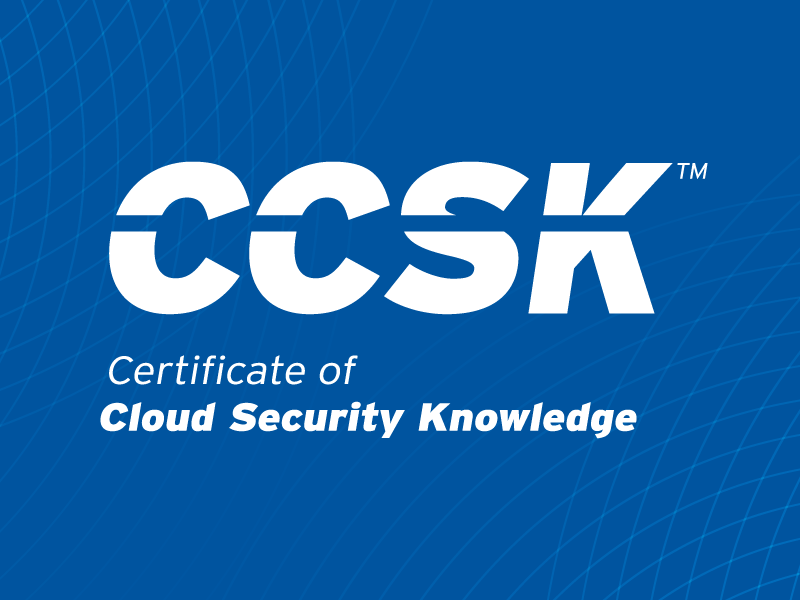How to Prepare Your Workforce to Secure Your Cloud Infrastructure with Zero Trust
Published 04/24/2024
Written by Martin Hall.
As business reliance on cloud infrastructure has grown, attack surfaces have changed, vulnerabilities have increased, and the nature of threats continues to evolve. Zero Trust has become a pivotal framework to enhance the security of cloud infrastructure and services. Its foundational principle of “never trust, always verify” is key for organizations to mitigate an evolving array of sophisticated cyber threats.
While it’s essential for securing a company’s digital assets, transitioning to a Zero Trust approach from a conventional security model can be challenging. For example, Forrester reports that over 63% of organizations are struggling to implement Zero Trust Architectures, with lack of talent being a key challenge. For executives and security directors, planning for the transition to Zero Trust with early, cost-effective investment in workforce training can mitigate these issues.
Why Zero Trust is Essential for Securing Cloud Infrastructure
Cyber attacks can have devastating operational and business implications, including significant financial loss, damage to brand reputation, and loss of customer trust. AI advancements are compounding the threat landscape, with attackers using them to develop more complex attack vectors. The need for robust security measures to protect sensitive data and maintain business continuity has never been more pressing.
This changing landscape necessitates a dynamic and robust approach to cloud security beyond traditional perimeter defenses. A Zero Trust approach to security has become a strategic imperative. It shifts the security paradigm from a conventional 'trust but verify' model to a 'never trust, always verify' stance, effectively addressing the modern-day cyber threat landscape.
Industry consensus around Zero Trust underscores its significance. Gartner predicts that by 2025, over 60% of organizations will adopt Zero Trust as a foundational element of their cybersecurity strategy, highlighting its critical role in future-proofing businesses against cyber threats.
Across CSA membership, 37 vendors already offer Zero Trust capabilities in their products, substantiating the approach and providing organizations with an array of implementation options. Federal mandates, including an executive order from the Biden Administration, are more evidence of the push towards Zero Trust, signaling an industry-wide shift toward more secure, resilient cybersecurity frameworks for cloud infrastructure.
What Your Workforce Needs to Know
To prepare for and plan this cloud security transition, organizations must ensure their workforce has the requisite knowledge and skills to architect, plan, deploy, and manage their enhanced cloud security environment. Ensuring that your team is trained and capable is key to decision-making and the successful deployment of a Zero Trust Architecture (ZTA).
Determining who in your organization needs to understand the various aspects of Zero Trust is crucial for a cohesive and comprehensive implementation. Spreading foundational knowledge across your team, from security practitioners to management teams to C-suite executives, will facilitate a smooth and effective transition.
The journey to Zero Trust implementation should start with a grounding in the key principles, equipping professionals with the ability to architect and implement solutions. This education should be based on authoritative industry knowledge, backed by experts, and provide insights from industry best practices.
CCZT is Your Organization’s On-Ramp to Zero Trust Cloud Security
CSA has developed the Certificate of Competence in Zero Trust (CCZT) to enable organizations to prepare professionals for the Zero Trust transition across their workforce. Cyber Defense Magazine has recognized the CCZT as a 2024 Global InfoSec Award winner for Cutting-Edge Cybersecurity Training. It’s the first Zero Trust training and certificate program that is independent, informed by industry experts, and designed to provide organizations with the on-ramp to Zero Trust that they need.
For organizations to cost-effectively educate all stakeholders, CCZT group training is available in a format most appropriate to their teams, whether it’s online or in-person.
With CCZT group training, participants learn:
- Foundational Zero Trust Concepts
- Zero Trust Architecture, Planning, and Implementation
- Fundamentals of Software-Defined Perimeters
- Industry Best Practices
The CCZT includes foundational Zero Trust components released by CISA and NIST, innovative work in the Software-Defined Perimeter by CSA Research, and guidance from renowned Zero Trust experts such as John Kindervag, Founder of the Zero Trust philosophy.
To provide organizations with the assurance of Zero Trust proficiency, it includes an exam and rewards participants who pass with the CCZT Certificate.
Contact [email protected] to learn more about how your organization can prepare its workforce for Zero Trust adoption with CCZT group training.
Unlock Cloud Security Insights
Subscribe to our newsletter for the latest expert trends and updates
Related Articles:
The Great Divide: How AI Is Splitting the Cybersecurity Landscape
Published: 02/12/2026
Non-Human Identity Governance: Why IGA Falls Short
Published: 02/05/2026
Resolving The Coordination Gap in Modern Cloud Security
Published: 02/03/2026









.jpeg)